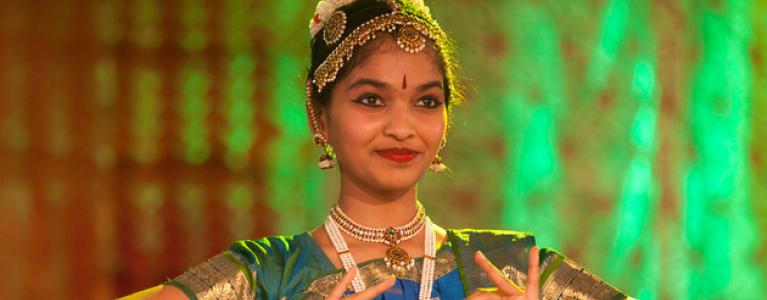
As part of the London Community Story programme, grants have been awarded to 20 community organisations with existing projects which capture Londoner’s experiences of COVID-19, supporting them to be presented and shared with a wide audience.
The insights that they have gathered will be shared with those working on the 9 missions set out to steer London’s recovery.
Malti Patel is an artist and curator for Apsara Arts, a community-led organisation that promotes, shares and makes Asian arts accessible to all. In this blog, Malti shares some of the information she has gathered on the experiences of South Asian Londoners during the pandemic after reflecting on it as part of the LCS programme.
COVID-19 was like a tsunami wave. It swept the world impacting us all. It changed the way we live and the things we do daily. I set out to explore experiences during the first lockdown when people were confined to their homes. I heard many stories covering a range of experiences and emotions that people expressed in this period; mental health, isolation, bereavement, rediscovering hobbies, finding new interests and much more. The interviews culminated into 24 short films giving a snapshot of participants’ personal lockdown stories. These stories can be seen on the Musuem of Croydon and the Apsara Arts website. In this blog, I’ll be focusing on three of these stories.
Natalie
Natalie had lost her mum in April and had agreed to share her experience with me. We met up in Coombe gardens that she frequented during lockdown. Bereavement affects everyone in different way and I was not sure how the interview would work out.
As it turned out, Natalie was poised and talked at length about her feelings and the stressful process of arranging a funeral. It felt like she needed to ‘let out’ all her thoughts and emotions. She was most devastated when she could not hug her own adult children to console them. She fondly talked about her mum’s excellent baking skills and her joy of ballroom dancing.
There remained many memories, stories and emotions for her to process and make sense of it all. I was very moved. My thoughts turned to all the bereaved individuals and their prolonged grief, unable to say goodbye nor participate in normal rituals.
Hemali
Life must go on as they say. Hemali was beaming away talking about her experience of giving birth to her first child Kaiya in April. Although a very happy moment for her, it was the loneliest three days in the hospital. She was not allowed any visitors including her husband. She was happy that she and her husband now have a lot of time to bond with Kaya. However, she expressed her concerns about her development due to limited social interaction outside the family.
Komal
Like Bollywood movies, our story cannot be complete without mentioning the proposed “Big Fat Indian wedding” of Komal. She and her partner Andy planned to have a church wedding in August and a traditional Indian wedding in October. Komal spent ten days in Mumbai shopping for their wedding outfits and also for the extended families and her five bridesmaids. They secured a dreamy venue with ‘autumn vibes’ that suited both families and friends for travel. Other arrangements for catering, flowers and invitation cards was all sourced and sorted. Komal was looking forward to her big day that she had always dreamt of since she was a little girl.
With the continuous changes of COVID-19 restrictions, she became very stressed about her wedding arrangements. She arrived at a difficult decision of cancelling her Indian wedding and settling for a small church ceremony. She was sad that she could not invite her grandparents to the wedding due to restrictions on numbers. She said that her parents would like her to have an Indian wedding in future. However, she feels that recreating would not be the same and she already ‘feels married’.
Birth, marriage and death are considered the most important social events in all our lives. They are marked with practiced social norms and rituals. They are shared moments of human touch/hugs and emotions of joy or sadness with family and friends. With Covid-19 stripping them away, how will we reconcile with this ‘new’ normal?